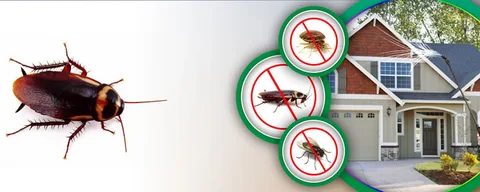The Ultimate Guide to Pest Control and Bed Bug Treatment
Effective pest control and bed bug treatment are crucial for maintaining a healthy and hygienic environment. Pests like bed bugs, cockroaches, termites, and rodents not only damage property but also pose serious health risks. This guide provides comprehensive insights into managing these problems, offering tips, techniques, and best practices.
What is Pest Control?
Pest control involves managing and eliminating unwanted creatures that invade homes, offices, and agricultural areas. These pests can include insects, rodents, and other organisms that can cause structural damage and spread diseases.
Importance of Pest Control
- Health Protection: Many pests, such as cockroaches and rats, are carriers of harmful pathogens.
- Property Preservation: Termites and other pests can destroy wooden structures and furniture.
- Food Safety: Proper pest management prevents contamination of food and water sources.
- Peace of Mind: A pest-free environment reduces stress and anxiety.
Types of Pest Control Methods
- Chemical Pest Control: Using insecticides and pesticides to eliminate pests effectively.
- Biological Control: Employing natural predators like birds or beneficial insects to manage pests.
- Mechanical Methods: Physical barriers, traps, and devices to keep pests at bay.
- Integrated Pest Management (IPM): A combination of techniques to provide sustainable pest control solutions.
Bed Bug Treatment: Eradication and Prevention
Bed bugs are one of the most persistent and troublesome pests. They infest bedding, furniture, and crevices, feeding on human blood and causing itchy bites. Effective bed bug treatment requires thorough planning and execution.
Signs of a Bed Bug Infestation
- Red, itchy bites on the skin.
- Bloodstains on sheets or mattresses.
- Dark fecal spots on bedding or furniture.
- Shed skins and eggshells in cracks and crevices.
Steps for Bed Bug Treatment
- Inspection: Thoroughly inspect mattresses, bed frames, and furniture for signs of bed bugs.
- Decluttering: Remove unnecessary items to limit hiding spots.
- Vacuuming: Use a vacuum cleaner to remove bed bugs and their eggs from surfaces.
- Washing: Wash bedding and clothes in hot water and dry them on high heat.
- Use of Insecticides: Apply sprays or powders specifically designed for bed bug elimination.
- Professional Help: For severe infestations, professional pest control services are recommended.
Preventing Pest Infestations
General Pest Control Tips
- Maintain Cleanliness: Regularly clean and sanitize your home to eliminate food and water sources for pests.
- Seal Entry Points: Close gaps, cracks, and holes in walls, doors, and windows to prevent pests from entering.
- Proper Waste Management: Dispose of garbage promptly and use sealed trash bins.
- Eliminate Standing Water: Prevent mosquito breeding by draining stagnant water in and around your home.
Specific Measures for Bed Bug Prevention
- Avoid bringing second-hand furniture into your home without inspecting it for bed bugs.
- Use mattress encasements to block bed bugs from nesting in your bed.
- Keep luggage off the floor and away from beds when traveling.
Health Risks of Pests and Bed Bugs
Diseases Caused by Pests
- Mosquitoes: Malaria, dengue, and Zika virus.
- Rodents: Hantavirus, leptospirosis, and salmonella.
- Cockroaches: Asthma and allergies triggered by droppings and shed skins.
Effects of Bed Bug Infestations
- Sleep disturbances and psychological stress.
- Secondary skin infections due to excessive scratching.
- Social stigma and embarrassment.
How to Choose Effective Pest Control Methods
DIY Solutions vs. Professional Services
- DIY Pest Control: Suitable for minor infestations; involves using sprays, traps, and natural remedies.
- Professional Pest Control: Best for severe infestations; experts use advanced techniques and equipment to ensure complete eradication.
Factors to Consider
- Severity of the infestation.
- Type of pests present.
- Safety concerns, especially for children and pets.
- Cost of treatment and ongoing maintenance.
FAQs about Pest Control and Bed Bug Treatment
1. How often should I schedule pest control services?
Scheduling pest control every three to six months is recommended to prevent infestations and maintain a pest-free environment.
2. Can I use natural remedies for pest control?
Yes, natural remedies like diatomaceous earth, vinegar, and essential oils can be effective for mild pest issues.
3. How long does it take to get rid of bed bugs?
The duration depends on the severity of the infestation. It may take weeks of consistent treatment to eliminate all bed bugs and their eggs.
4. Are pesticides safe for pets?
When used as directed, most pesticides are safe. However, always ensure your pets are kept away during and after application.
5. Can bed bugs survive after treatment?
If treatment is incomplete or improperly executed, bed bugs may survive. Following all recommended steps ensures successful eradication.
Conclusion
Both pest control and bed bug treatment are vital for ensuring a safe, healthy, and comfortable living environment. By understanding the methods and strategies discussed in this guide, you can effectively manage and prevent infestations. Whether you choose DIY solutions or professional services, taking proactive measures is key to maintaining a pest-free home.


